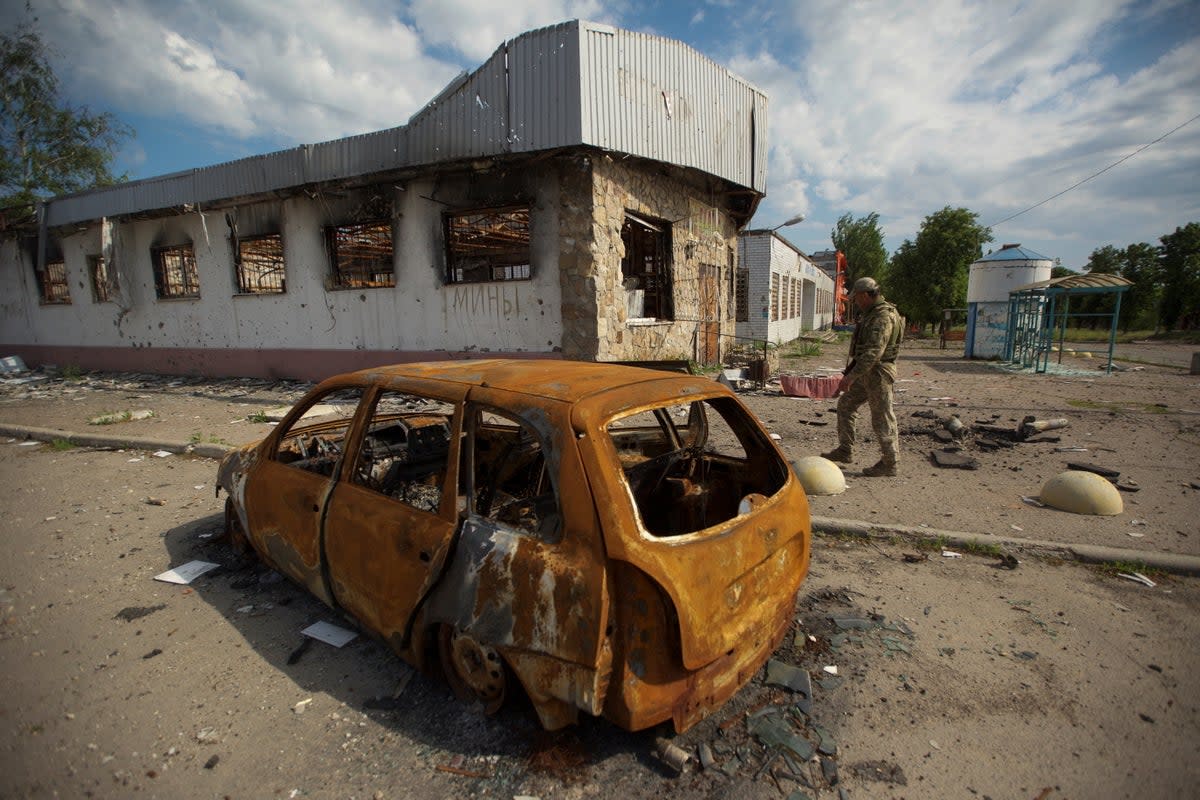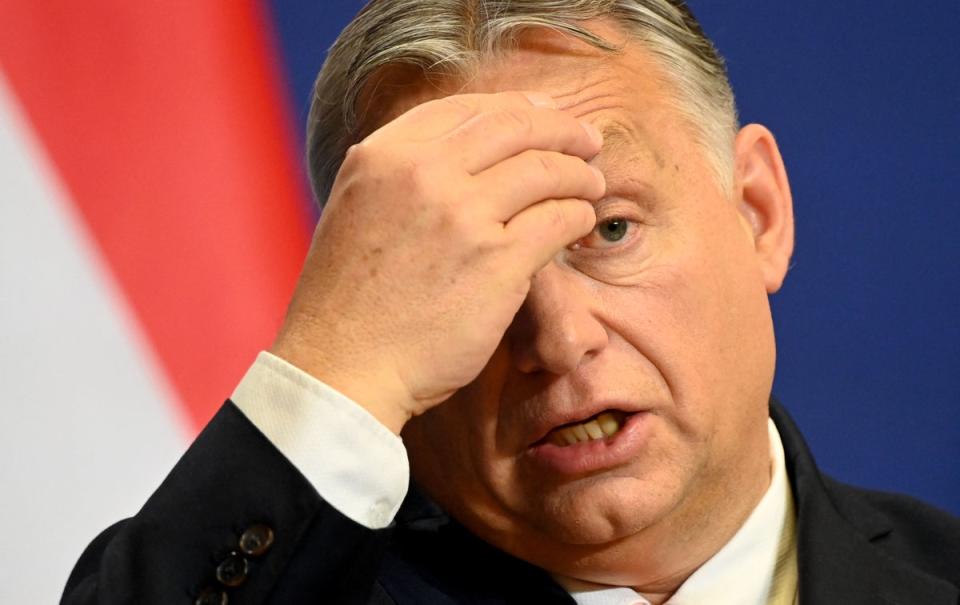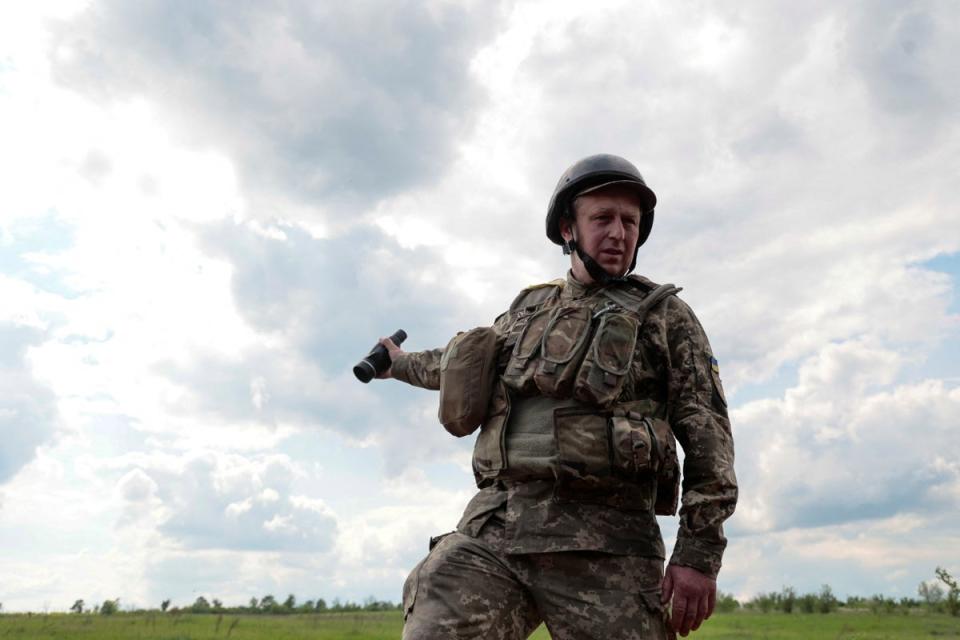EU leaders split over Russian oil ban as street fighting rages in besieged Donbas city

- Oops!Something went wrong.Please try again later.
- Oops!Something went wrong.Please try again later.
European leaders are split over whether to target Russian oil in the latest round of sanctions aimed at supporting Ukraine.
Heads of state and government from the European Union’s 27 nations will meet on Tuesday at a summit to discuss further measures to inflict pain on Russia in response to its unprovoked invasion of Ukraine.
But the extent to which the bloc can help could be limited as it emerged Hungary is leading a group of countries, along with Slovakia, the Czech Republic and Bulgaria, to prevent an oil embargo.
Ukrainian President Volodymyr Zelensky, who will address the summit by videoconference in the evening, has repeatedly demanded that the EU target Russia's lucrative energy sector, the Associated Press reported.
Such sanctions would deprive Moscow of billions of dollars each day in supply payments, he has said.
But the Hungarian prime minister Viktor Orban in insisting the proposal should not be discussed. Hungary gets more than 60 per cent of its oil from Russia and 85% of its natural gas.
The EU has already hit Russia with five rounds of sanctions over its war in Ukraine, targeting more than 1,000 people, including President Vladimir Putin, prominent oligarchs and top government officials.
The bloc announced a sixth round of sanctions earlier this month but has so far failed to act in unison over the issue of oil imports.

Ahead of the summit, officials suggested that a solution might be found by targeting oil transported by ships and holding fire on the pipeline oil so valuable to Hungary.
"If we target the oil arriving by sea, we'll hit at least two thirds of exports, perhaps more," a senior EU official, who wished to remain anonymous, said.
Hungary and Slovakia depend on Russian oil they receive through the Soviet-era Druzhba pipeline.
The issue of food security will also be on the table on Tuesday, with the leaders set to encourage their governments speed up work on "solidarity lanes" to help Ukraine export grain and other produce.
The summit comes as fighting continued to intensify in Ukraine’s Luhansk region as Russian forces try to capture the largest city still under Ukrainian control in the territory.
The Kremlin’s forces have their sights on Sievierodonetsk, which is located around 145km (90 miles) from the Russian border on the strategically-important Siverskiy Donetsk river.
In recent weeks, the Kremlin’s forces have pounded it with heavy artillery, with much of the city thought to lie in ruins.
“Some 90 per cent of buildings are damaged. More than two-thirds of the city’s housing stock has been completely destroyed. There is no telecommunication. There is constant shelling,” the Ukrainian president Volodymyr Zelensky said.

“Capturing Sievierodonetsk is a fundamental task for the occupiers… We do all we can to hold this advance,” he added.
The fighting in the city has grown fiercer. Mayor Oleksandr Striuk said Monday that “Russian troops have entered the city and street fighting is going on.”
He added that the Ukrainian defenders were fighting to push the Russians out.Striuk added that “the Russian troops have advanced a few blocks toward the city centre”.
He said that “we have no power and no communications. The city has been completely ruined”.
The mayor said that 12,000-13,000 civilians left in the city are sheltering in basements and bunkers to escape relentless Russian bombardment. He said that “the number of victims is rising every hour, but we are unable to count the dead and the wounded amid the street fighting”.

